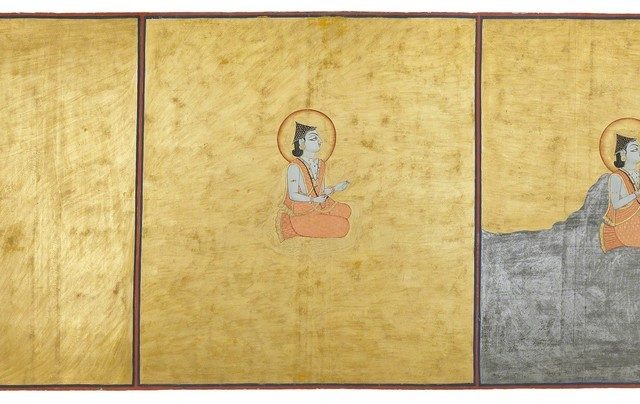
The UCLA Program on Central Asia invites you to the multidisciplinary workshop, Steadfast Imagining: Lyric Meditation, Islamic Philosophy, and Comparative Religion in the Works of Bidel of Delhi (d.1720) organized and led by Prof. Domenico Ingenito (UCLA, Near Eastern Languages and Cultures) and Dr. Jane Mikkelson (University of Virginia) in cooperation with scholars working in Persian Studies, Islamic Studies, South Asian, Near Eastern, and Central Asian Studies, English, Anthropology, and Comparative Literature. All sessions will be held in English, and all reading materials (both primary and secondary sources) will be circulated and presented in English translation.
This workshop is sponsored and organized by UCLA Program on Central Asia (in collaboration with Iranian Studies), and co-sponsored by the Center for India and South Asia, the Center for Medieval and Renaissance Studies, and the Center for Near Eastern Studies.
Click this link to see the full workshop multi-day schedule. This workshop includes five sessions which will convene bi-weekly on Fridays from 1:00 to 2:00 PM (Pacific Time) via Zoom, with the first meeting on October 23 and the concluding session on December 18.
UCLA graduate students can receive 2 units of course credit by enrolling in Central Asian Studies (Anthro M247Q, Near East M287, or History M287). Contact Prof. Ingenito (ingenito@humnet.ucla.edu) to obtain a PTE number by Friday, October 16.
Workshop Description
In 1670, the young poet and aspiring philosopher Bidel of Delhi was travelling through northern India. He decided to break his journey in Agra. That night, he experienced a visionary dream that would reframe his entire life: he witnessed the unfolding of the cosmos, in all its spatial and temporal totality, as it emanated from God through the outer stars and planetary spheres down to the smallest atoms of the earth. Then the prophet Muhammad appeared before Bidel and interpreted this dream for him. Bidel instantly understood the meaning of everything—perfectly. For that brief moment, human experience converged seamlessly with a godlike total knowledge of true reality. However, as Bidel emerged from the dream into waking consciousness, Muhammad’s words faded away, eluding memory—and the dream’s interpretation, which had given him blissful contact with absolute certain truth, “remained hidden in the manuscript of the imagination.”
Bidel would spend the rest of his life trying to recapture that moment of insight into the innermost workings of the universe. He undertakes to explore this “manuscript of the imagination” by composing thousands of Persian lyric poems, a remarkable philosophical autobiography, long narrative allegories, and other works. In all these genres, Bidel creatively engages with religious and philosophical ideas, theories, and practices—both Islamic and Indic—through which he develops a distinctive experimental style of lyric meditation: steadfast imagining. Bidel’s Persian corpus remains largely unknown in the American academy outside of specialist circles. The aim of this workshop is to introduce Bidel to a broader audience. Over the course of five sessions, we will reconstruct some of Bidel’s theories and practices of steadfast imagining, with particular attention to the ways in which philosophy, religion, and literature are intricately entwined in his works. Joining us in conversation are scholars working in Persian Studies, South Asian, Near Eastern, and Central Asian Studies, English, Anthropology, and Comparative Literature.

